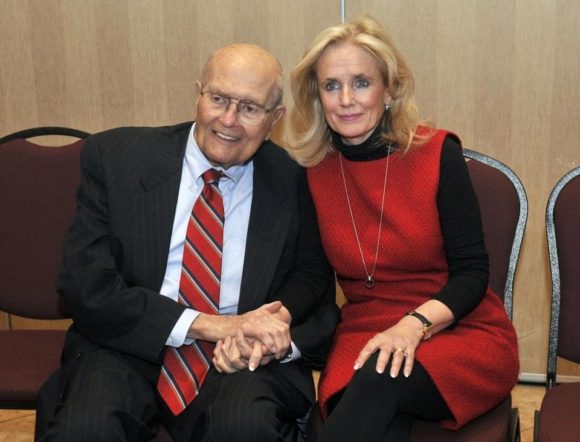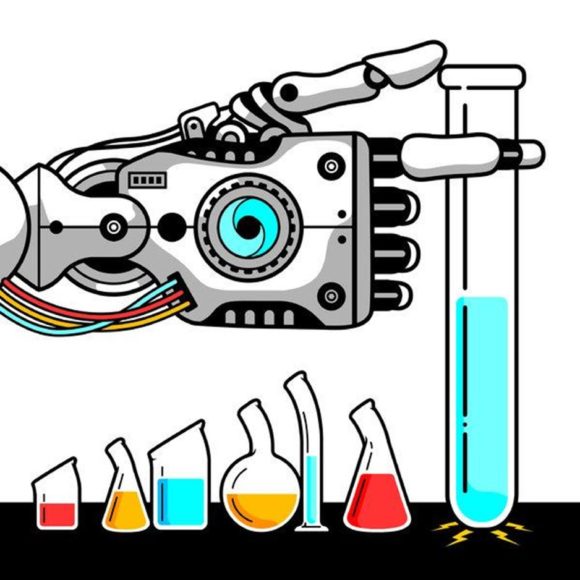Dear Commons Community,
Rep. John Dingell, who was the longest-serving member of the U.S. Congress when he died Feb. 7 at the age of 92, dictated a letter to his wife, Debbie, in the hours before his death.
“One of the advantages to knowing that your demise is imminent, and that reports of it will not be greatly exaggerated, is that you have a few moments to compose some parting thoughts.”
That’s how former U.S. Rep.John Dingell, D-Dearborn, started a farewell letter (see below for full text) that was posted by The Washington Post yesterday afternoon.
Dingell served in Congress from 1955 to 2015 and was chairman of the House Energy and Commerce Committee.
In the letter, Dingell reflects on the changes he had seen since he began in Congress, noting elder care, environmental concerns and race relations as areas where “we’ve made progress.”
“Please note: All of these challenges were addressed by Congress,” Dingell said. “Maybe not as fast as we wanted, or as perfectly as hoped. The work is certainly not finished. But we’ve made progress — and in every case, from the passage of Medicare through the passage of civil rights, we did it with the support of Democrats and Republicans who considered themselves first and foremost to be Americans.”
Dingell also appeared to take a jab at President Trump, but did not name him:
“In our modern political age, the presidential bully pulpit seems dedicated to sowing division and denigrating, often in the most irrelevant and infantile personal terms, the political opposition…
“My personal and political character was formed in a different era that was kinder, if not necessarily gentler. We observed modicums of respect even as we fought, often bitterly and savagely, over issues that were literally life and death to a degree that — fortunately – we see much less of today.”
And Dingell, a sensation on Twitter in his later years, noted in the letter: “And much as I have found Twitter to be a useful means of expression, some occasions merit more than 280 characters.”
He thanked the people in his life: friends, neighbors, family, but most of all, his wife
“In my life and career I have often heard it said that so-and-so has real power — as in, ‘the powerful Wile E. Coyote, chairman of the Capture the Road Runner Committee.’ It’s an expression that has always grated on me. In democratic government, elected officials do not have power. They hold power — in trust for the people who elected them. If they misuse or abuse that public trust, it is quite properly revoked (the quicker the better).”
May he rest in peace!
Tony
The Washington Post
February 7, 2019
John Dingell: My last words for America
One of the advantages to knowing that your demise is imminent, and that reports of it will not be greatly exaggerated, is that you have a few moments to compose some parting thoughts.
In our modern political age, the presidential bully pulpit seems dedicated to sowing division and denigrating, often in the most irrelevant and infantile personal terms, the political opposition.
And much as I have found Twitter to be a useful means of expression, some occasions merit more than 280 characters.
My personal and political character was formed in a different era that was kinder, if not necessarily gentler. We observed modicums of respect even as we fought, often bitterly and savagely, over issues that were literally life and death to a degree that — fortunately – we see much less of today.
Think about it:
Impoverishment of the elderly because of medical expenses was a common and often accepted occurrence. Opponents of the Medicare program that saved the elderly from that cruel fate called it “socialized medicine.” Remember that slander if there’s a sustained revival of silly red-baiting today.
Not five decades ago, much of the largest group of freshwater lakes on Earth — our own Great Lakes — were closed to swimming and fishing and other recreational pursuits because of chemical and bacteriological contamination from untreated industrial and wastewater disposal. Today the Great Lakes are so hospitable to marine life that one of our biggest challenges is controlling the invasive species that have made them their new home.
We regularly used and consumed foods, drugs, chemicals and other things (cigarettes) that were legal, promoted and actively harmful. Hazardous wastes were dumped on empty plots in the dead of night. There were few if any restrictions on industrial emissions. We had only the barest scientific knowledge of the long-term consequences of any of this.
And there was a great stain on America, in the form of our legacy of racial discrimination. There were good people of all colors who banded together, risking and even losing their lives to erase the legal and other barriers that held Americans down. In their time they were often demonized and targeted, much like other vulnerable men and women today.
Please note: All of these challenges were addressed by Congress. Maybe not as fast as we wanted, or as perfectly as hoped. The work is certainly not finished. But we’ve made progress — and in every case, from the passage of Medicare through the passage of civil rights, we did it with the support of Democrats and Republicans who considered themselves first and foremost to be Americans.
I’m immensely proud, and eternally grateful, for having had the opportunity to play a part in all of these efforts during my service in Congress. And it’s simply not possible for me to adequately repay the love that my friends, neighbors and family have given me and shown me during my public service and retirement.
But I would be remiss in not acknowledging the forgiveness and sweetness of the woman who has essentially supported me for almost 40 years: my wife, Deborah. And it is a source of great satisfaction to know that she is among the largest group of women to have ever served in the Congress (as she busily recruits more).
In my life and career I have often heard it said that so-and-so has real power — as in, “the powerful Wile E. Coyote, chairman of the Capture the Road Runner Committee.”
It’s an expression that has always grated on me. In democratic government, elected officials do not have power. They hold power — in trust for the people who elected them. If they misuse or abuse that public trust, it is quite properly revoked (the quicker the better).
I never forgot the people who gave me the privilege of representing them. It was a lesson learned at home from my father and mother, and one I have tried to impart to the people I’ve served with and employed over the years.
As I prepare to leave this all behind, I now leave you in control of the greatest nation of mankind and pray God gives you the wisdom to understand the responsibility you hold in your hands.
May God bless you all, and may God bless America.








